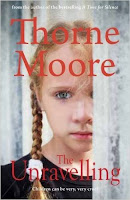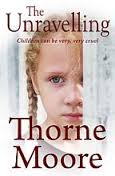Guest Interview With Sam Carrington
 Today, I’m delighted to be
chatting to my on-line friend and author, Sam Carrington. Sam’s debut novel, ‘Saving Sophie', was published by Avon
Books, a division of Harper Collins Publishers on Friday 12th August
and I’m very pleased to welcome her onto the blog to talk about the book.
Today, I’m delighted to be
chatting to my on-line friend and author, Sam Carrington. Sam’s debut novel, ‘Saving Sophie', was published by Avon
Books, a division of Harper Collins Publishers on Friday 12th August
and I’m very pleased to welcome her onto the blog to talk about the book.
 Today, I’m delighted to be
chatting to my on-line friend and author, Sam Carrington. Sam’s debut novel, ‘Saving Sophie', was published by Avon
Books, a division of Harper Collins Publishers on Friday 12th August
and I’m very pleased to welcome her onto the blog to talk about the book.
Today, I’m delighted to be
chatting to my on-line friend and author, Sam Carrington. Sam’s debut novel, ‘Saving Sophie', was published by Avon
Books, a division of Harper Collins Publishers on Friday 12th August
and I’m very pleased to welcome her onto the blog to talk about the book.
Welcome, Sam. We haven’t met in person but I feel I
‘know’ you from your support on Twitter, Facebook and, of course, this blog.
I’ve followed your writing journey with interest and now it’s happened. Your
debut novel is out there - huge congratulations! Perhaps you’d like to introduce yourself and
tell us a little about your writing.
Hello, Jan – thanks for
having me on your blog!
I was pretty late to the
writing game really – I was 38 when I began writing short stories, and I had
some success with a few of them being published in women’s magazines and
anthologies. But it was always novels that I really wanted to write, so at the
end of 2013 I’d made up my mind to start! I began my first novel (which is now
‘in a drawer’ as they say) in January 2014. By the end of that year, I was
thinking about the next. The early version of this second novel was long listed
in the 2015 CWA Debut Dagger award, and became 'Saving Sophie'.
Can you tell us what inspired you to write ‘Saving Sophie’?
Well, I had various ideas
before settling on the topic and main themes for 'Saving Sophie' - having worked in a prison I’m not short of those,
but everything was in note-form. Then inspiration came unexpectedly, from a
source close to home! A particular ‘incident’ left me with many ‘what if?’
questions, and so I used these to form the basis of 'Saving Sophie’s plot. I believe, as a parent, some fears are
universal and I wanted to explore the mother-daughter relationship when it’s
put under pressure, as well as think about how teenagers can often hide an
awful lot from their parents!
Before I read a word of the book, the cover drew me
in. The image of a solitary girl behind the mesh of metal fencing set my mind
racing with so many possibilities about her situation. How much say did you
have in the cover design?
 I was sent a few mock-ups of
the cover by the publisher and asked my thoughts. It’s a very strange feeling
to see how your story, the themes and characters are translated into pictures
or art work. I was thrilled with the cover, although I had one reservation.
This was discussed, and the picture tweaked. So I was involved a bit, which was
lovely, and unexpected actually – I hadn’t thought I would have any say in the
finished cover. I loved the colours – which again underwent a few changes – and
I think the overall look they’ve gone with is very striking. The e-book and paperback
editions are slightly different – the font colour for e-book is a bright pink,
whereas the font on the paperback will be a hot coral pantone. I’m very excited
to see how that looks.
I was sent a few mock-ups of
the cover by the publisher and asked my thoughts. It’s a very strange feeling
to see how your story, the themes and characters are translated into pictures
or art work. I was thrilled with the cover, although I had one reservation.
This was discussed, and the picture tweaked. So I was involved a bit, which was
lovely, and unexpected actually – I hadn’t thought I would have any say in the
finished cover. I loved the colours – which again underwent a few changes – and
I think the overall look they’ve gone with is very striking. The e-book and paperback
editions are slightly different – the font colour for e-book is a bright pink,
whereas the font on the paperback will be a hot coral pantone. I’m very excited
to see how that looks.
‘Saving Sophie’ is both disturbing and gripping,
staying with me long after I’d finished reading it.
That’s lovely to hear, Jan! What more could an author ask for?
That’s lovely to hear, Jan! What more could an author ask for?
When the story opens with a murder and later when a
body is found, did you know then how each of the characters would react or were
they developed as you got further into the writing of the novel?
I had vague ideas of how I
thought each character would respond to the devastation that unfolded. But,
having said that, as I was writing – and particularly with the emotional scenes
– I did kind of ‘go with the flow’ a number of times. I’m hoping that the
reactions, the character’s inner turmoil and their interactions with each
other, therefore, come across more naturally.
The reason I ask that is that you seem to get right
inside the heads of your characters, especially Karen and her daughter, Sophie.
How has your study of psychology and your work in prison enabled you to explore
their inner thoughts and emotions?
Firstly, as a mum, I think
that the worries, fears and reactions Karen experienced were easier to bring to
life – after all, I share many of those fears! But I believe that through my
work, firstly as a nurse, then as an offending behaviour programme facilitator
in the prison, I have come across many emotional and challenging situations and
I have been privy to a lot of people’s most vulnerable moments. So I have a
wide range of experience dealing with the fallout of illness, death, crime and
of managing the many emotions which surround these. All of this, I believe, supports
my writing.
Because it’s a crime novel, the role of the police,
DI Lindsay Wade and DS Mack, is there throughout the book, obviously, but it
seems to be secondary to the relationship of Karen and Sophie who are the first
to solve the crime. Is there a reason for this?
 I didn’t ever want 'Saving Sophie' to be a police procedural
novel, so the decision that they should take a back-seat was there from the
outset. I felt it was important to have this ordinary-seeming family central to
the story and have the police there as support characters, rather than main
ones. I do use DI Lindsay Wade as one of the main viewpoints; she has some of
her own chapters, but again, this is really to give a taste of who she is as
the police investigation obviously plays an integral role in the overall story.
The most important relationship I wanted to get across was the mother-daughter
one.
I didn’t ever want 'Saving Sophie' to be a police procedural
novel, so the decision that they should take a back-seat was there from the
outset. I felt it was important to have this ordinary-seeming family central to
the story and have the police there as support characters, rather than main
ones. I do use DI Lindsay Wade as one of the main viewpoints; she has some of
her own chapters, but again, this is really to give a taste of who she is as
the police investigation obviously plays an integral role in the overall story.
The most important relationship I wanted to get across was the mother-daughter
one.
I believe you’re writing a second novel, Sam. Can you
tell us what it’s about? How much planning has it involved so far?
The next novel introduces
forensic psychologist, Connie Summers. There is more from DI Wade and DS Mack
in this novel, although again, the focus is more on Connie and her client,
Steph, who is under the protected persons scheme. Old family secrets, guilt and
revenge are the key themes in this novel. Ultimately, though, it’s about how
one action or behaviour can have far reaching implications for others – like
the butterfly effect, and about seeking justice for those who’ve been wronged.
Although I have a clear
vision, detailed plans and have been working ‘behind-the-scenes’ on character
biographies and sub-plots for some months, the actual writing of book two has
slowed. The publishing of 'Saving Sophie'
came much sooner than I’d anticipated, so it rather took a back seat! I’m
looking forward to getting back into writing though, and
am hoping to hit the deadline…!
Finally, what is the biggest compliment you could
have for writing ‘Saving Sophie’?
The best compliment would be
hearing that someone has read and enjoyed the novel and taken something away
from it. And hopefully that it will be remembered!
Thank you so much for taking
the time out to chat to me, Sam. I wish you loads of good luck with your book,
both as an e-book and again when it’s published as a paperback in December.
Here are the links to buying the book and finding out more about Sam:
Amazon: https://www.amazon.co.uk/Saving-Sophie-gripping-psychological-brilliant-ebook/dp/B01DT37C1O
Blog:
Sam Carrington Writer Facebook page: //www.facebook.com/samcarringtonauthor/
Twitter: @sam_carrington1
MY THOUGHTS AFTER READING
Rating: 5*
Rating: 5*
This novel had me gripped
from the moment I read the disturbing prologue through to the shocking
conclusion. I couldn’t put it down and kept thinking about it long after I’d
finished it. A teenage girl arrives home drunk and is unable to remember
anything about the evening out she’s just had with friends. We soon learn that
another girl has gone missing and from then on, the twists and turns of the
story make it compelling reading. Sam has
a wonderful knack of delving deep into the psyche of the main characters and the relationship between Karen Finch, who has
agoraphobia, and her daughter, Sophie, is particularly well done. By telling
the story from both their viewpoints, more relationships and subplots are
explored to keep the reader turning the pages to find out their secrets. The
use of social media plays an integral part in the novel and its possibilities
for both good and, most definitely, for evil are played out to perfection.
‘Saving Sophie’ is fast paced, well written with an excellent twist at the end
and I can’t recommend it highly enough. An exciting debut!
Thank you for reading my interview with Sam. I couldn't put 'Saving Sophie' down. What makes you keep turning the pages?
You may also follow me on Twitter @JanBayLit and on my Jan Baynham Writer Facebook page.
*** There will be no blog posts from me for a few weeks as I leave for two weeks in Crete next weekend. I'm trying to tell myself it's research for my next novel which is set in Greece. ;-)
You may also follow me on Twitter @JanBayLit and on my Jan Baynham Writer Facebook page.
*** There will be no blog posts from me for a few weeks as I leave for two weeks in Crete next weekend. I'm trying to tell myself it's research for my next novel which is set in Greece. ;-)

















